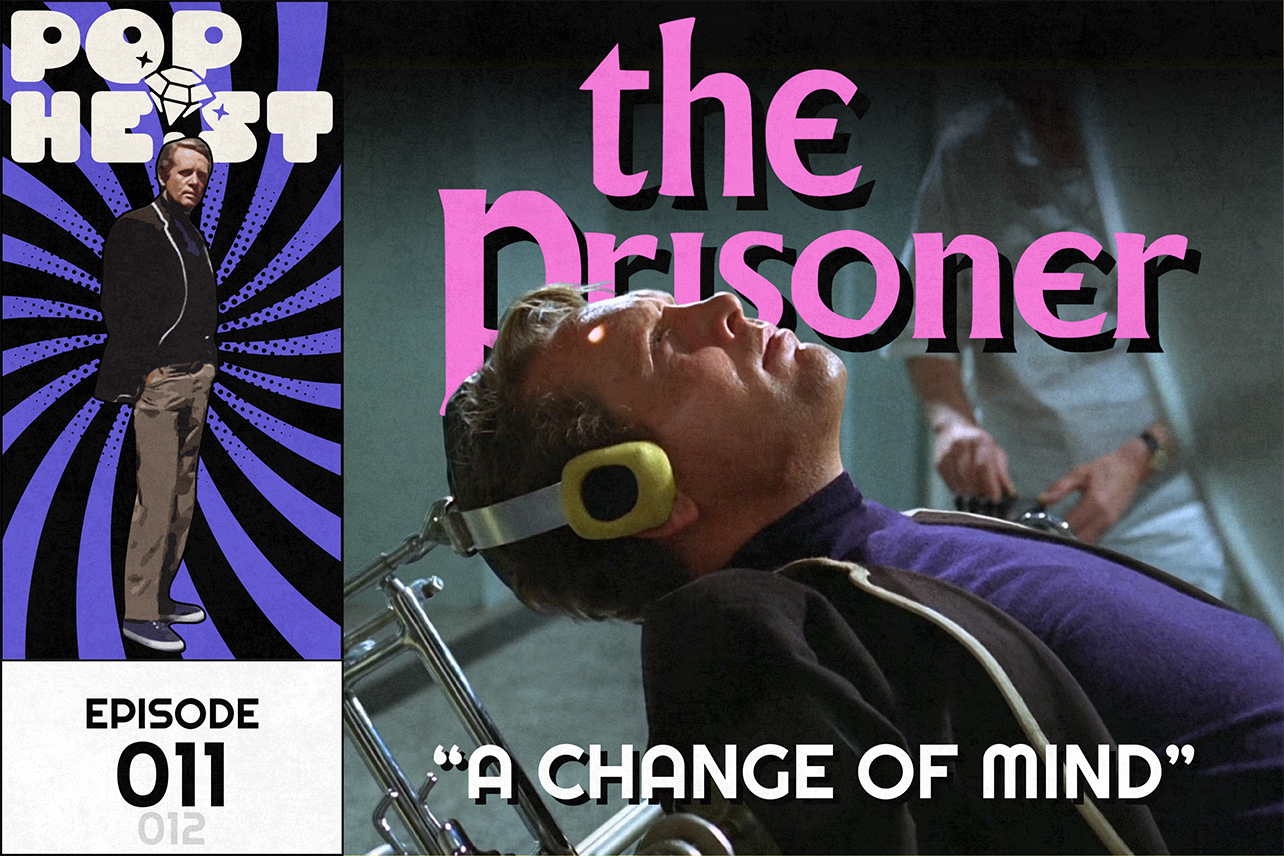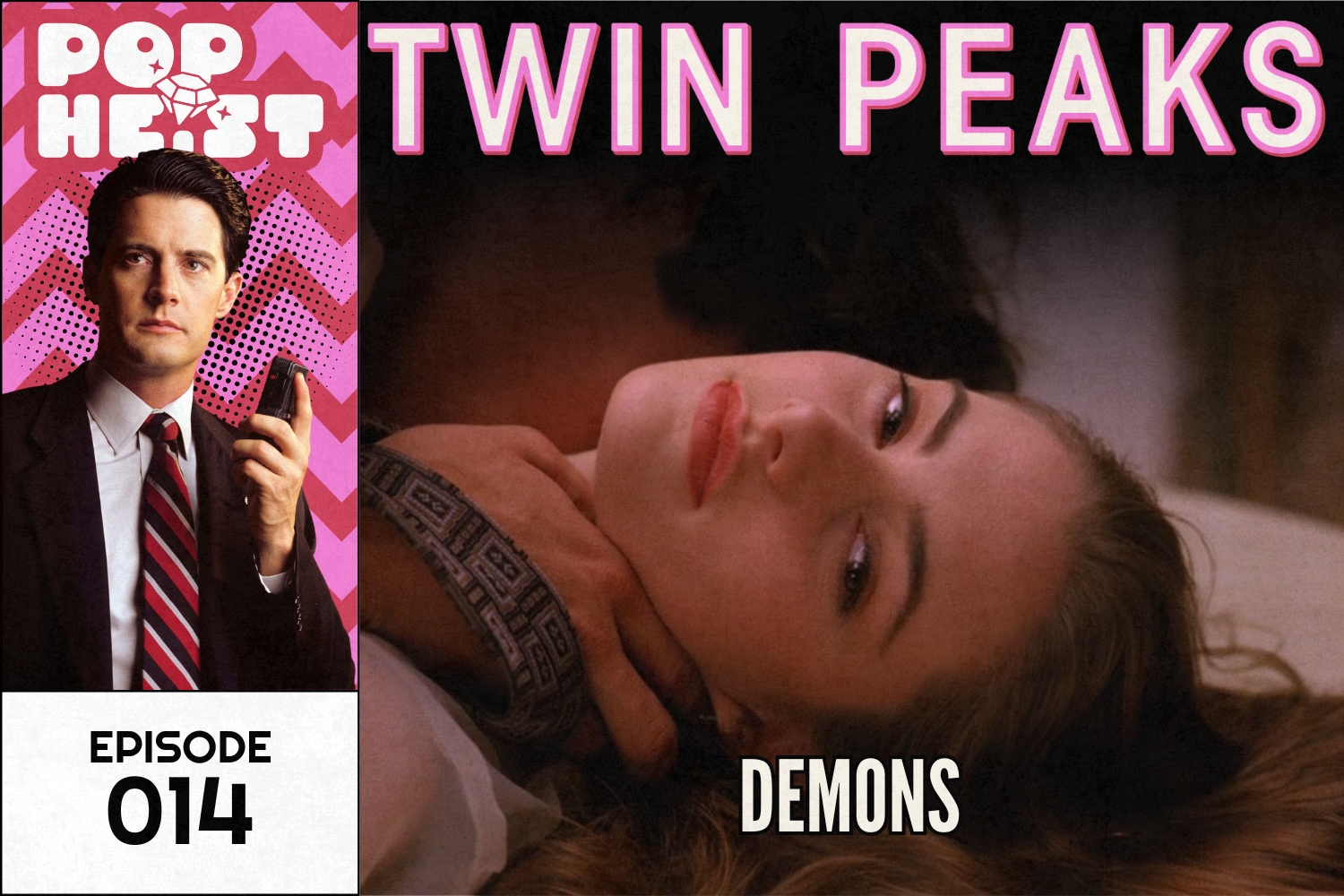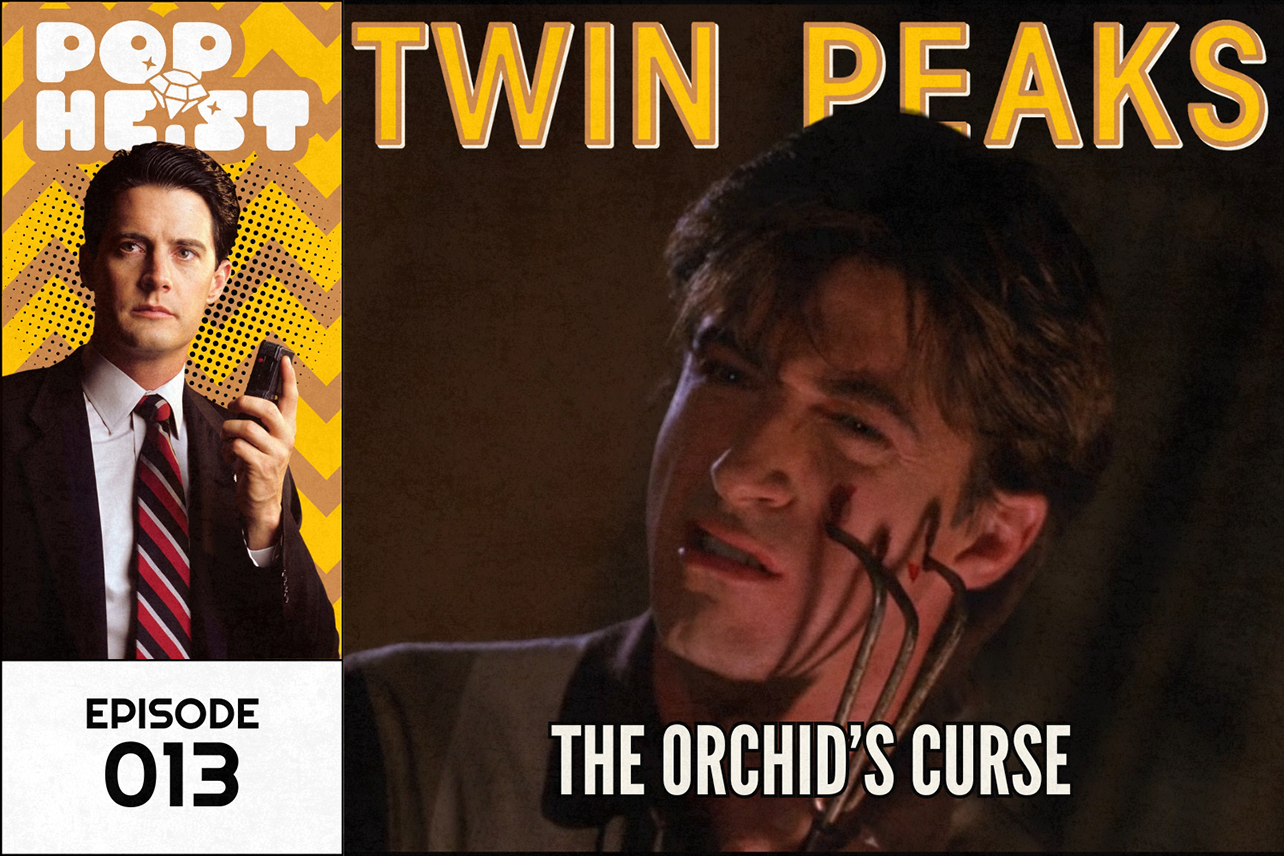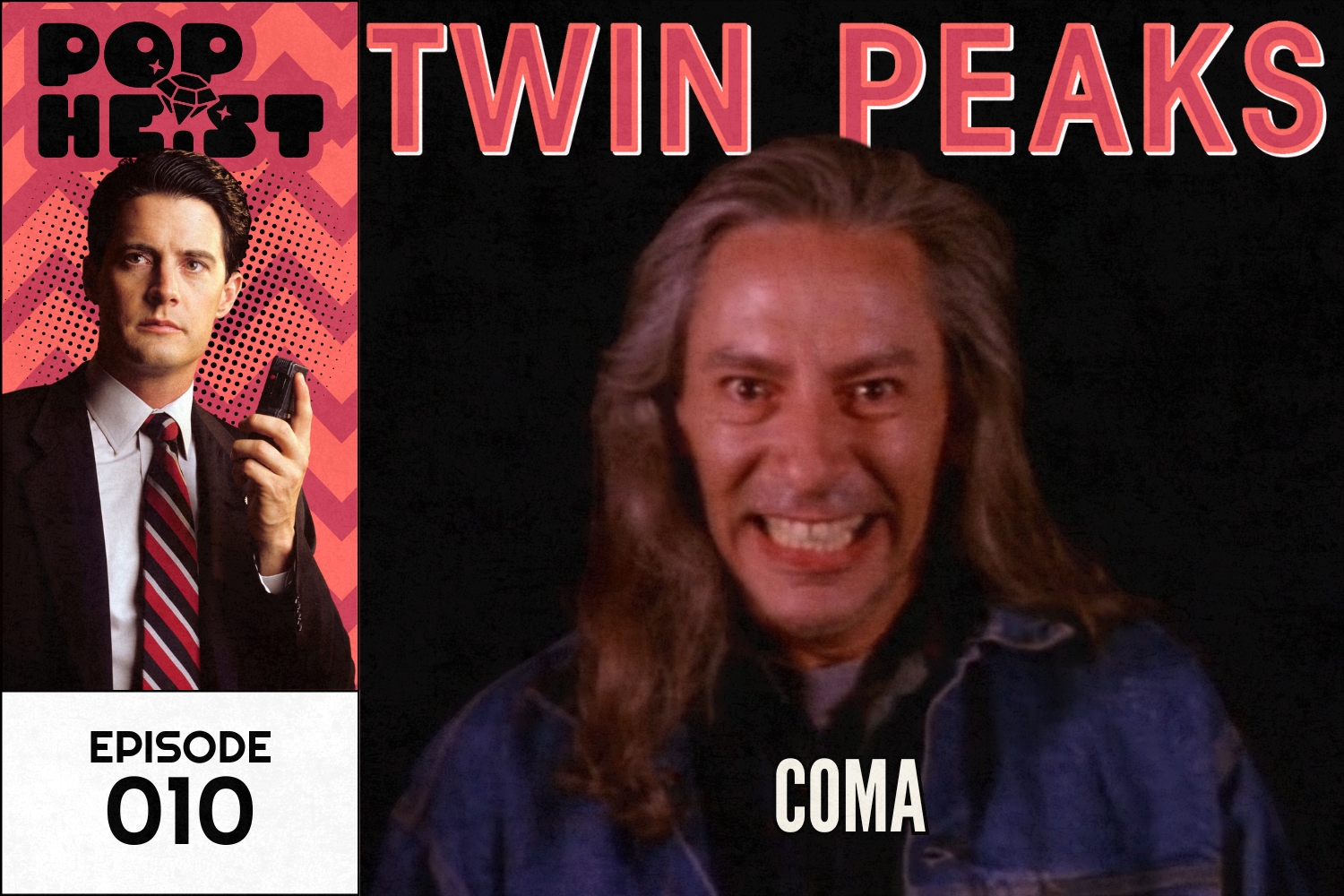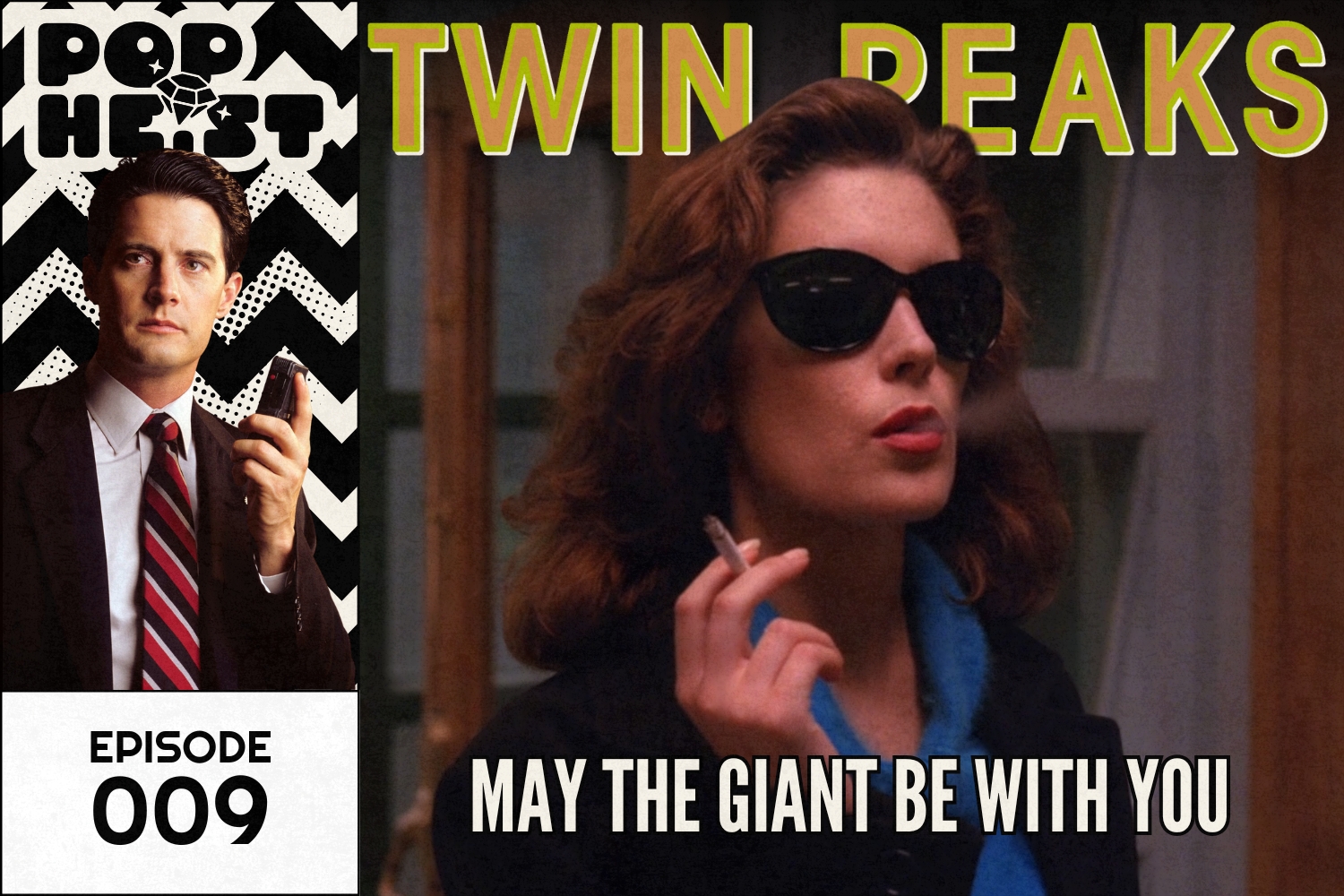In PRESTIGE PREHISTORY, Pop Heist critic Sean T. Collins takes a look at classic TV shows that paved the way for the New Golden Age of Television — challenging, self-contained stories from writers and filmmakers determined to push the medium forward by telling stories their own way.
The Prisoner Episode 12 (airdate order) / Episode 11 (AVC order)*
"A Change of Mind"
Original Airdate: Dec. 15, 1967
Writer: Roger Parkes
Director: Patrick McGoohan (as Joseph Serf)
Cast: Patrick McGoohan, John Sharp, Angela Browne, Angelo Muscat, Peter Swanwick, Kathleen Breck, Thomas Heathcote, Michael Miller, June Ellis
*NOTE: The Prisoner's proper running order is a matter of dispute; Pop Heist is using the AV Club order for the show
"You are a flaw in the pattern, Winston. You are a stain that must be wiped out. Did I not tell you just now that we are different from the persecutors of the past? We are not content with negative obedience, nor even with the most abject submission. When finally you surrender to us, it must be of your own free will. We do not destroy the heretic because he resists us: so long as he resists us we never destroy him. We convert him, we capture his inner mind, we reshape him. We burn all evil and all illusion out of him; we bring him over to our side, not in appearance, but genuinely, heart and soul. We make him one of ourselves before we kill him. It is intolerable to us that an erroneous thought should exist anywhere in the world, however secret and powerless it may be. Even in the instant of death we cannot permit any deviation. In the old days the heretic walked to the stake still a heretic, proclaiming his heresy, exulting in it. Even the victim of the Russian purges could carry rebellion locked up in his skull as he walked down the passage waiting for the bullet. But we make the brain perfect before we blow it out. The command of the old despotisms was 'Thou shalt not'. The command of the totalitarians was 'Thou shalt'. Our command is 'THOU ART'. No one whom we bring to this place ever stands out against us. Everyone is washed clean."
George Orwell, 1984
The Prisoner is, no pun intended, a number of things. It's both colorful episodic sci-fi and a bleak, Kafkaesque parable of persecution. It's a work of dreamlike surrealism and an extended riff on swinging '60s super-spy shows. And it's a dystopia in miniature, its setting an eerily idyllic open-air prison instead of a gigantic closed society. Of course, at least one Number Two has suggested that the endgame for all of this can be summed up as "Today the Village, tomorrow the world."
Of all the episodes we've watched, "A Change of Mind" is the one in which actor-auteur Patrick McGoohan — who once again directs under his "Joseph Serf" pseudonym — seems engaged most directly with the mid-20th century's dystopian landmarks. Orwell's 1984 looms large, of course, as it long has: faces of authority looming down from sloganeering posters, captives reconditioned to love their tormenters, a reassuring face replacing an image of terror in compulsory film viewing, even the Winston/O'Brien relationship between Number Six and several of the Number Twos.
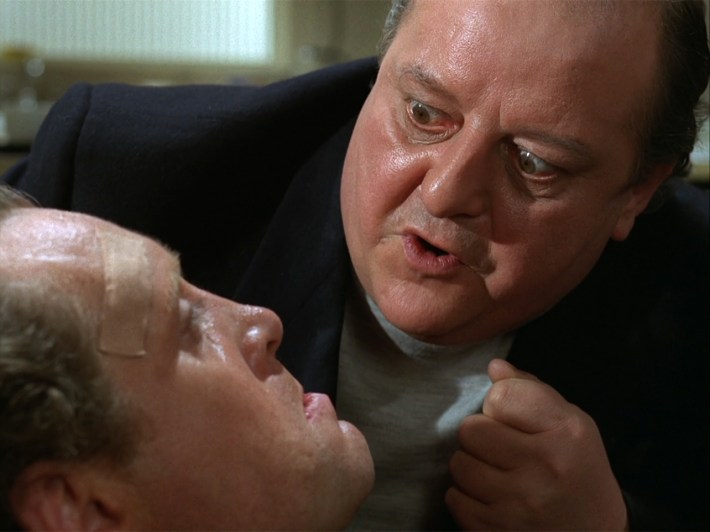
The use of drugs and aversion therapy to induce reflexive compliance and nonviolence, meanwhile, is straight out of Anthony Burgess's A Clockwork Orange, published five years prior. The show predates Stanley Kubrick's infamous and stylistically influential adaptation of the novel and anticipates the director's aesthetic approach, from its costumed droogs to its combined movie theater/torture chamber.
But McGoohan's also firing live ammo here. Under the new Number Two (John Sharp, whose roles in The Wicker Man and Barry Lyndon yield a significant Prisoner-fan Venn diagram overlap), the Village's methods of bringing antisocial, inadequate, disharmonious, UNMUTUAL Villagers to heel recall any number of real-world oppressions: Soviet show trials, McCarthyite purges, Maoist self-criticism sessions, the vicious conformity of little England or small-town America. The term used in the episode for its science-fictional mind-wiping procedure, "social conversion," carries bitter echoes of the persecution of queer kids in the decades to come.
The story itself echoes similarly structured episodes like "The General," in which strange new customs are adopted by the Villagers seemingly instantaneously. As he works out in the home gym he constructed in the woods outside the Village one day, Six learns of the latest craze when two goons (John Hamblin and Michael Billington) attack him, accusing him of a failure to be "community-minded" by exercising all by himself. When he mollywhops these clowns, one of them portentously warns "You'll face the Committee for this!" before slinking away.
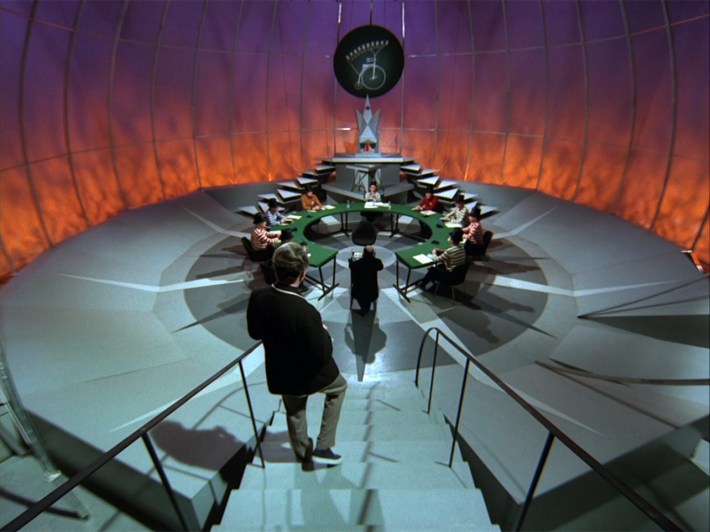
Six soon finds out what this means. Meeting in the same strange circular room with a jagged, Ice King from Adventure Time–looking throne in the back, a committee of stripe-shirted, top-hatted men decides the fate of various Villagers who've been found to be recalcitrant in one form or another.
Number 93 (Michael Miller), dragged in for unspecified crimes, grows increasingly hysterical as he denounces himself. Red-faced, bushy-bearded, and teary-eyed, he screams his desire for his fellow Villagers to believe his repentance as per the Committee's instructions.
Number 42 (Kathleen Breck), who can't stop crying, is soon reconditioned into a community-first zealot. She angrily denounces Six at a mandatory group meeting, in which two men with foreign accents (Joseph Cuby and Michael Chow) argue the semantics of proper Village praxis. Later, she appears as a member of the Ladies' Appeal, whose stern and doctrinaire leader, Number 48 (June Ellis), is furious with Six's heterodoxy.
But it's a wild-eyed man with a lobotomy scar (Thomas Heathcote) who offers Six the clearest picture of his future should he continue to resist the Committee, whether it's its bespectacled Chairman (Bartlett Mullins) or, as Six suspects, Number Two himself who's in charge. When cooperation can't be induced any other way, the Village does something to your brain to make you compliant, permanently.

Since he refuses to play ball in any way shape or form — I swear at one point it seems like he might come to blows with the Butler himself — Six is first denounced as UNMUTUAL, then shunned, then subjected to extreme measures. Jumped by the Appeals committee and a mob of Villagers who beat him with umbrellas, Six is dragged into a lab where his latest Village-appointed minder, Number 86 (Angela Browne, a dead ringer for Rhea Seehorn), is head medical technician. With Six immobilized and drugged, she outlines the process by which she'll use soundwaves to sever his brain's connection to its aggression center, rendering him meek and mild.
At least that's the story they're staging for him. You're right, of course, to remember all the times the Numbers Two talked to the Supervisor and their other underlings about how important it was not to do any kind of permanent damage to Six's brain. That's all still in effect, as it turns out. The lobotomization process Six undergoes is all smoke and mirrors, a combination of heavy drug dosages and a harmless burn to the scalp to convince him he's been rendered totally docile. Under those circumstances, Number Two reasons, Six can probably be persuaded to reveal the reason for his resignation. What would he have to lose?
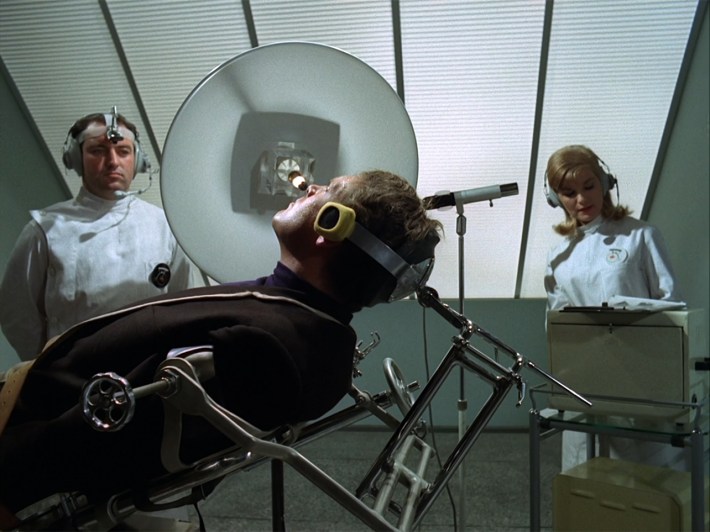
But since the procedure he undergoes wasn't real, its effects aren't total. Six pulls himself together long enough to notice 86 dropping a roofie into his tea, which he manages to avoid drinking not once but twice. The second time, he doses 86 with it instead; higher than the sun, she's easy for him to hypnotize into revealing that his "social conversion procedure" was just a ruse.
Now Six once again gets to use the Village's own sense of pervasive paranoia against itself, to undermine yet another Number Two. Pretending to believe in his own conversion, he tells Number Two he wishes to make a public confession. But when everyone in the Village is duly gathered to listen, the hypnotized Number 86 shows up and denounces … Number Two. For his desire to deceive the citizens, Six and 86 proclaim, Number Two has been found UNMUTUAL. The furious, chanting Villagers literally drum Number Two out of town, until he (or rather his entirely unconvincing stunt double) is forced to make a run for it.
The Butler stays behind, carrying an uncharacteristically black-and-white umbrella. What is this guy's deal, anyway?
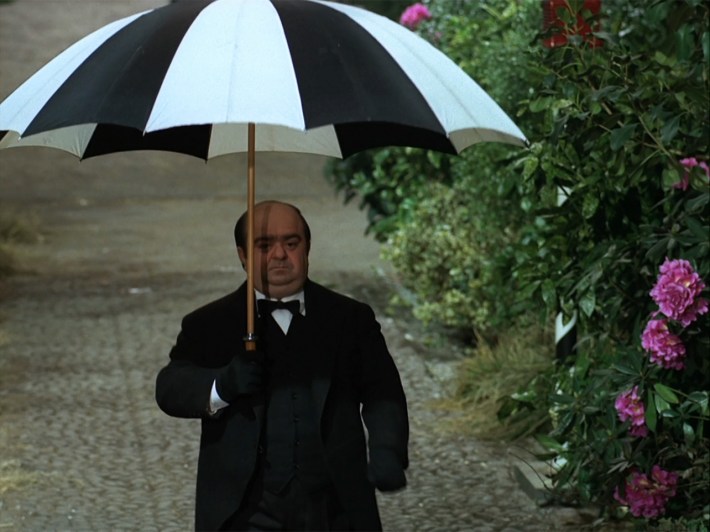
Even though it's largely dealing from a deck put together by recent literary and political history, this episode shows how McGoohan and company can still make their points stick. An observant director of actors, McGoohan mostly eschews the mind-bending visual stuff here in favor of an emphasis on the faces of the characters. The so-called "Lobo Man"'s vacant glee, Number 93's edge-of-sanity pleading, 42's incessant crying, the Supervisor's uncharacteristically open disdain for this Number Two, the leering and sneering faces of the Villagers who as a whole have never seemed more sinister — it's a cast full of standouts in small roles. They act as reminders that no matter what darkly miraculous fictional device is being employed as a means of or metaphor for control, dystopias, real and imagined, are ultimately built by human beings like you and me.
This recap was originally accessible to paid subscribers only, and future recaps in this series are available now for paid subscribers. If you haven't already, consider supporting worker-owned media by subscribing to Pop Heist. We are ad-free and operating outside the algorithm, so all dollars go directly to paying the staff members and writers who make articles like this one possible.
